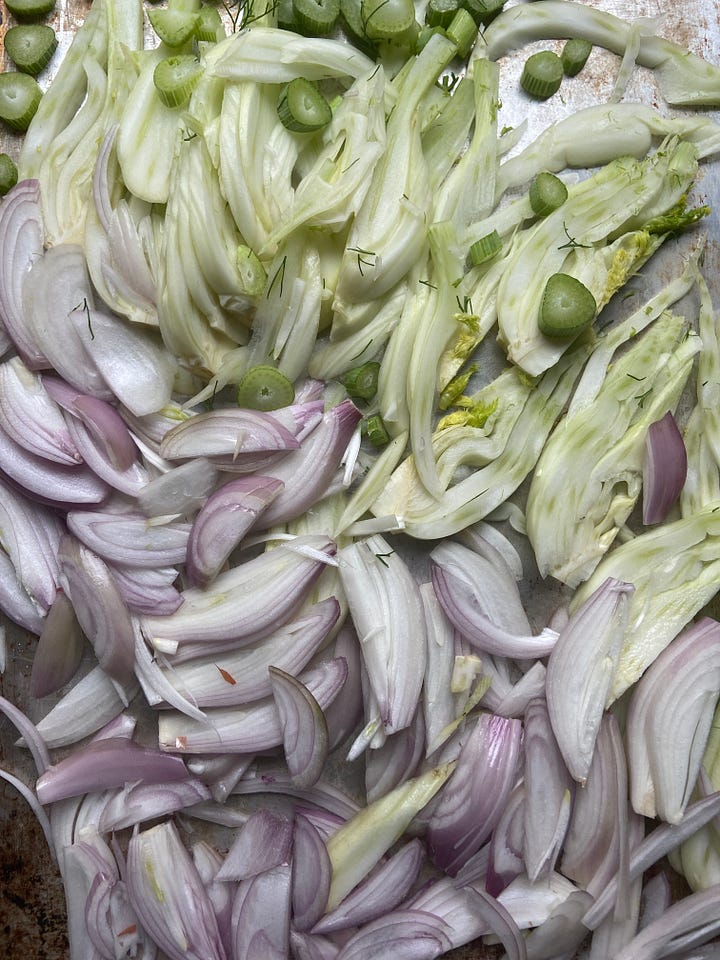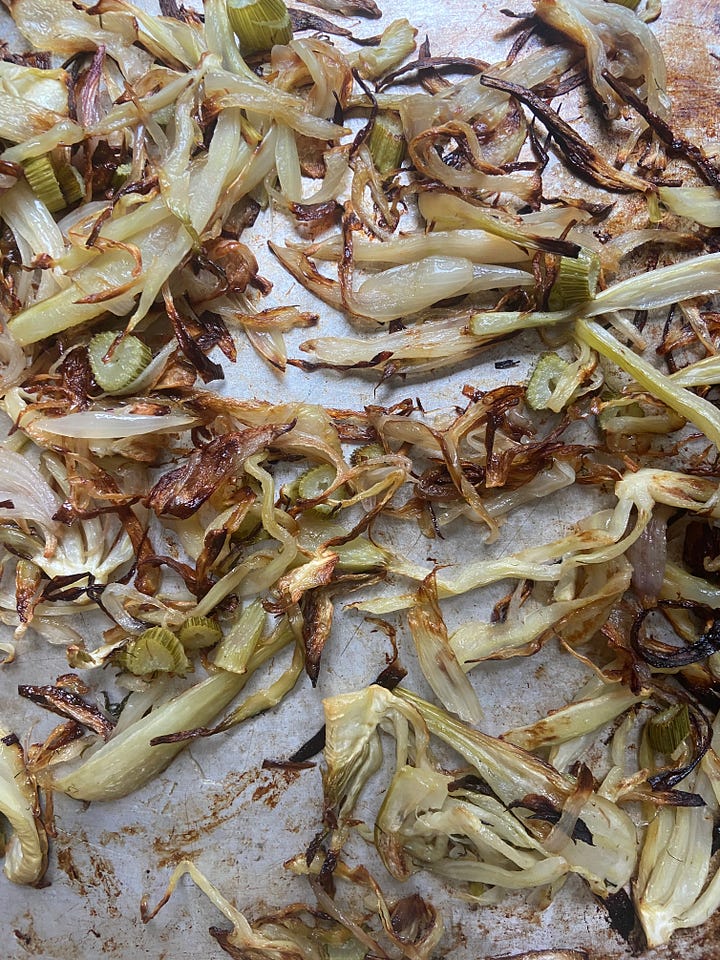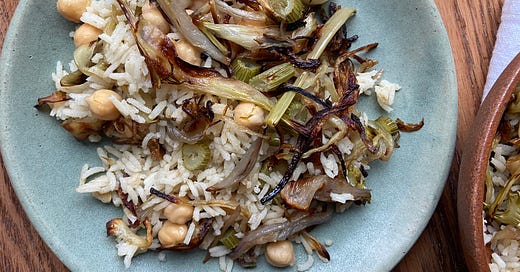"Practical and creative at same time" — Tom, a paid subscriber
If you ever want to be wowed by the transformative power of cooking, make mujaddara.
It starts with rice, lentils, and onions, three stony, cagey ingredients. But as they cook, these solitary spirits learn to collaborate, working towards a common cause that’s grander than their humble selves. The creamy lentils polka dot the tender kernels of rice, while fried slices of onion snake through.
Mujaddara (megadara, mejedra, majadarah, mejadara, mengedarrah, mujeddra) was first written about in 1226 in the Iraqi cookbook Kitab al-Tabikh (Book of Dishes) by Muhammad bin al-Hasan Al-Baghdadi. Over the centuries, it’s been made with many additions including meat, chickpeas, noodles, bulgur, and spices, but the fried onion seems to always be in the mix. The name means “having smallpox” in Arabic, referring to the pockmarks of lentils speckling the rice.1
The dish is made on Thursday nights that are busy with preparations for the Sabbath. It’s made on tired Sunday nights. It’s made for both happy and mournful gatherings. It’s made when people are hungry.
And only after I saw Rawaan Alkhatib’s bulgur mujadarra did I consider all the ways you could modify this incredible combination of rice, starchy protein, and caramelized-crisp vegetable to use only my 40 ingredients. Today’s recipe does that, warming canned beans on a bed of cumin rice. Then, instead of frying onions, there’s a sheet-pan of tangled, browned shallots and fennel; they’re just as sweet and crisp as the fried version, just a bit more hands-off.


Rice, legumes, and an onion may be pedestrian, perhaps boring, but the way they find each other in mujadarra is so special. I didn’t explain the recipe when I gave Ryan a bowl of it for lunch, but I knew what he was asking for the next day when he asked if we had any more of “that good rice.”







